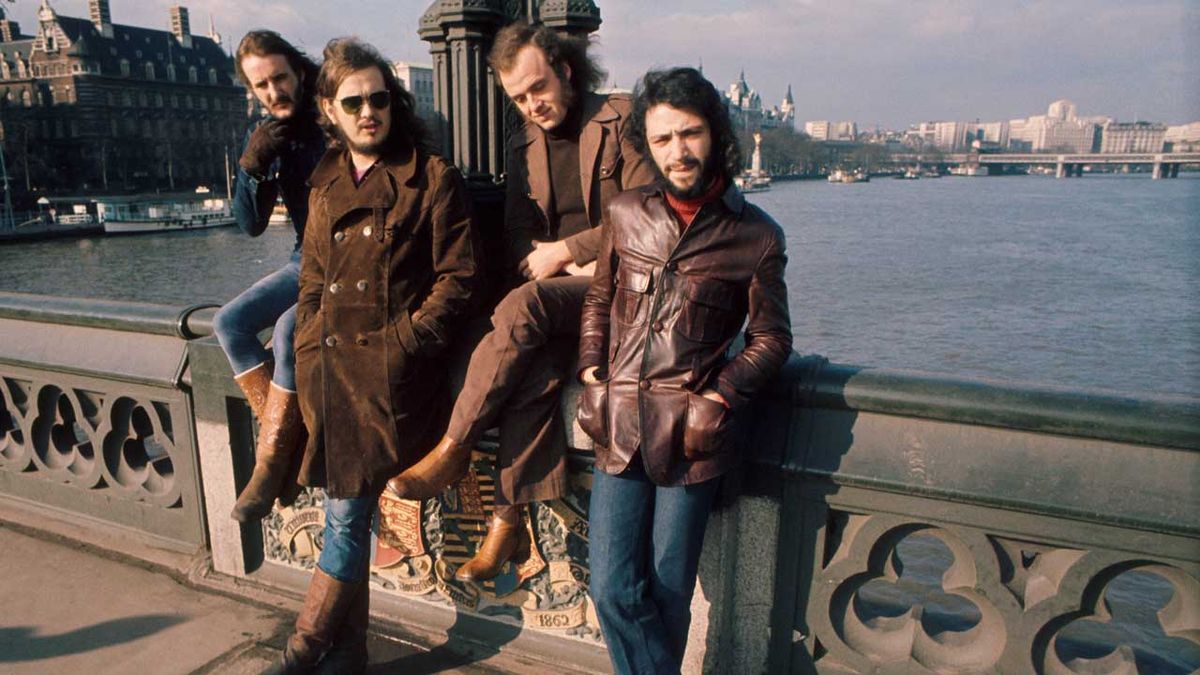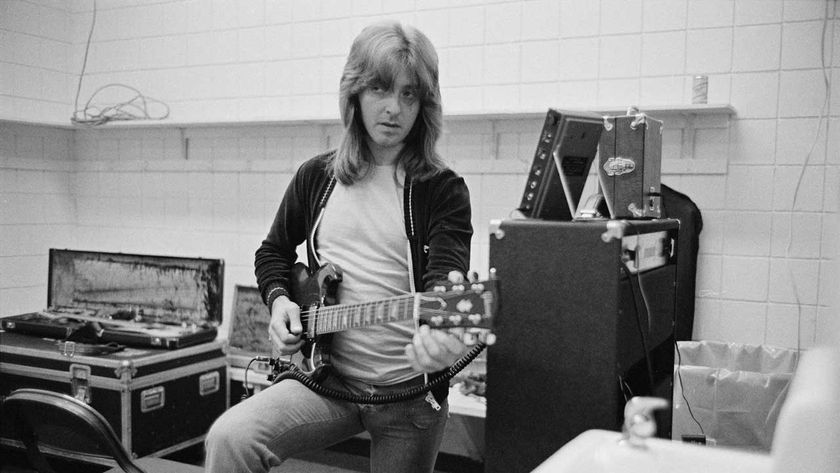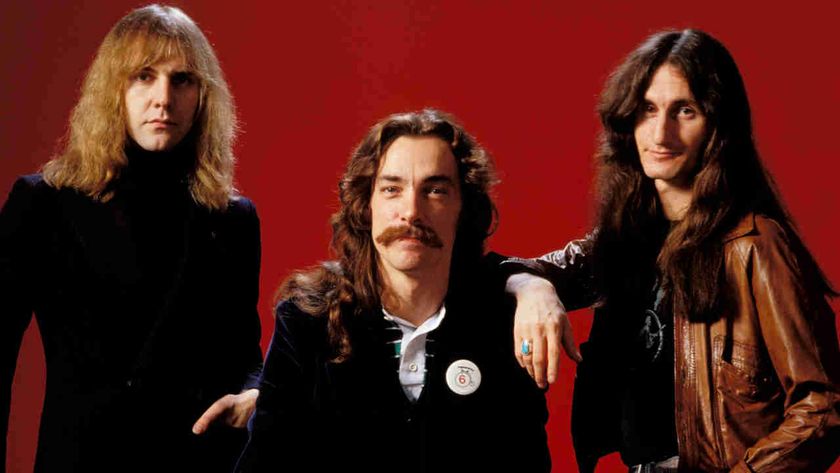Focus’s Hocus Pocus is among the most eccentric hit songs of all time, its unforgettable mixture of high-intensity rock, polka beats and yodelling (yes, yodelling) mirroring the lunatic nature of the band that created it.
In 1970, positive reviews of progressive rock band Focus’s debut album In And Out Of Focus had failed to translate into sales. Such was the apathy that the Dutch group self-released a single called House Of The King. A year later, at the second time of asking, and with a new rhythm section of bassist Cyril Havermans (who left after the album was recorded, to be replaced by Bert Ruiter) and drummer Pierre van der Linden, the band needed to come up with something spectacular.
The benchmark song that they craved emerged while guitarist Jan Akkerman and keyboard wizard/singer Thijs van Leer goofed around during a rehearsal session.
“Shortly before leaving for England to record the second album, we were playing at a castle, when the guitarist suddenly played that riff,” van Leer recalls of the birth of their breakthrough song. “Then completely spontaneously Pierre threw in a two-bar drum solo and I started yodelling. It came from nowhere; a piece of pure improvisation, inspired by the fun of playing together.”
Even more odd than having yodelling on a rock track is the fact that until that day van Leer had never yodelled before. Why did he pick such a pivotal moment to start? “I still think it came from heaven,” he says.
Like many composers of hits, van Leer knew instantly that he and Akkerman had created something of lasting value.
“Although I wasn’t aware that it might become a rock’n’roll classic, I had a feeling in my spine that it would make history,” he says. “Without boasting, it was something that I just knew.”
Hocus Pocus was recorded partly in London in April/May 1971. The band were impressed that Polydor Records had paired them with Mike Vernon, who had produced Fleetwood Mac and John Mayall. Apart from the addition of a manic flute solo, a flourish of accordion and some scat vocal ad-libs, the track was put down in just a couple of takes, and in almost exactly the same form as it had emerged at the castle.
With no lyrics per se, it was van Leer who proposed giving it a title that rhymed with the band’s name. “We even considered calling it Crocus for a short while,” he confides with a smile.
Focus really found their feet with their second album Moving Waves (on which Hocus Pocus was the opening track), which later prompted eventual long-term producer Mike Vernon to observe: “You wonder if it’s the same band [as the debut]”.
But it was the decision to make it [Hocus Pocus] a single by slashing three minutes from its original six-and-a-half that eventually established Focus as stars on both sides of the Atlantic. Hocus Pocus reached No.20 in the UK (on its second release, a year after its original 1972 release), and No.9 in the US more than a further year later.
As demonstrated by Focus’s 1973 album Live At The Rainbow, Hocus Pocus was slightly elongated when performed live, but the band resisted the temptation to make it the centrepiece of their show. These days it rarely lasts for longer than 10 minutes.
“The Moving Waves album did have Eruption, a song that took up a whole side of vinyl and which we still play live, but even at its longest Hocus Pocus was more like a single,” explains van Leer.
“Another thing that separated us from so many bands was that we play loudly and quietly,” he adds. “We dared to be vulnerable.”
One thing that Focus will never be brave enough to do is drop Hocus Pocus from their live shows – not that they even wish to.
"The crowd goes crazy whenever we play it, and we go crazy as well,” van Leer enthuses. “Even after all these years it’s never, never boring.”
As well as resurfacing during the end credits of TV comedy Saxondale, Hocus Pocus has been covered by several rock bands including Iron Maiden, Helloween and Marillion.
“Those other versions made me proud, but I don’t like any of them,” admits van Leer. He does, however, praise the most unusual rendition of all. “[Classical violinist] Vanessa Mae’s is the best of all,” he says. “She sent the song up brilliantly.”
Focus continue to tour and record. And van Leer concedes that Hocus Pocus still overshadows their every move. “The song deserves its place in rock history, and of course we continue to embrace it,” he concludes.




